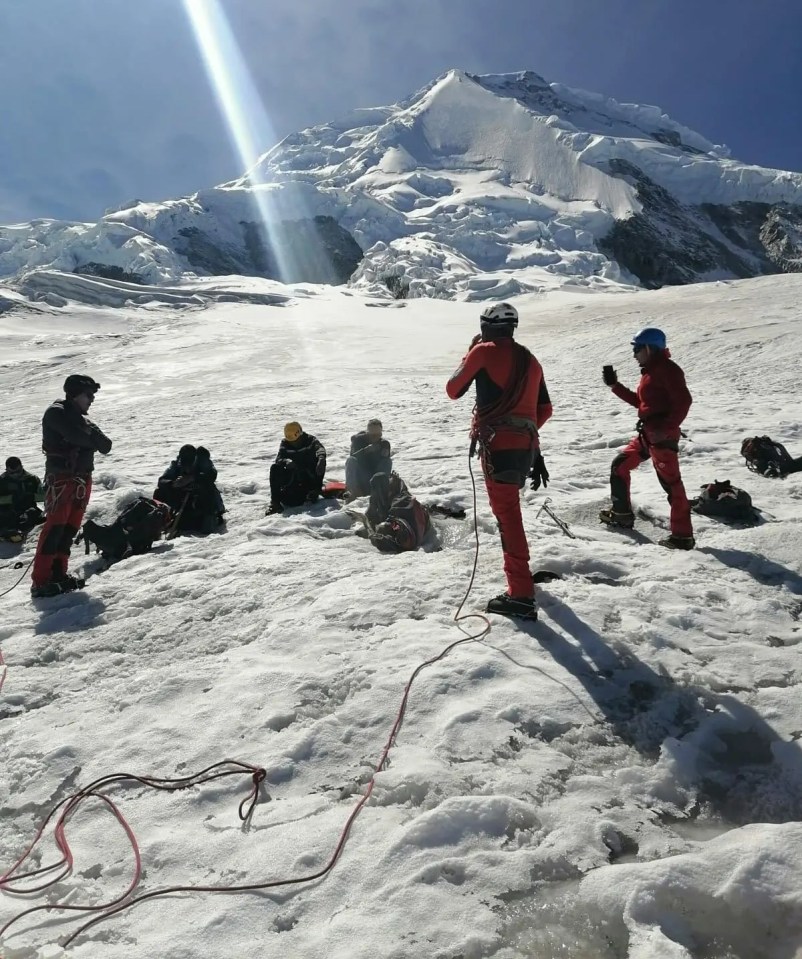A MOUNTAIN rescuer has revealed how he’s helplessly watched pals die in tsunami-like avalanches.
Eric Raul Albino is a self-proclaimed “mountain guy” who spends his days recovering stranded tourists up Peru‘s highest peaks – alive or dead.
Eric Raul Albino/Mountain Rescue Association S.AEric and his team have for long been helping to save lost climbers[/caption]
Eric Raul Albino/Mountain Rescue Association S.AIn June he and the team found a climber who had been lost for 22 years[/caption]
Eric Raul AlbinoEric Raul Albino spoke to The Sun about his job as a mountain rescuer[/caption]
Eric was born into the mountaineering job, taking after his grandfather and father in salvaging lost climbers.
When Eric started off in the dangerous career, it didn’t come without some mental struggles.
He told The Sun about his first time recovering a dead tourist in Peru and the psychological impact it had on him.
A French paraglider had been lost for 20 days and, after recovering his body for the heartbroken family, Eric said he “couldn’t sleep” due to “panic” and “nervousness”.
Eric was only a student at this point, but the striking experience didn’t stop him from pursuing his mountaineer career.
The job also doesn’t come without some danger either, especially with tsunami-like avalanches crashing down the mountains.
Eric has seen 20 people die in his time – tragically including his own colleagues.
He said: “We’ve already lost like five or six friends in Al Mao with avalanches. I’ve seen many, many people die already.
“Last year we lost one of our good friends – a mountain guide with an avalanche.
“The avalanche took him and fell down in Gravas.
“He was covered by a lot of glacier snow, and he died. So we couldn’t find the rest of him.”
Avalanches also detrimentally impact the rescue missions and how quickly the troops can save people.
Eric added: “When we have someone emergency calling, at the beginning, we evaluate or see how dangerous, how difficult it is.
“After that, we start to process depending how difficult it is to get to the person who got in the accident.
“There are some accidents that happen in the very big mountains for example. So in the beginning we have to, if somebody is still alive, act to it in the moment.
“Somebody calls, we have to start into to go for evacuation right now.”
The mountain hero also said that if the accident had happened already where they know somebody has died, they go at a slower pace to minimise risk for members who are going to do the rescue.
Eric Raul AlbinoEric has saved numerous people in the Peruvian mountains[/caption]
Eric Raul Albino/Mountain Rescue Association S.AEric spends his days rescuing people up Peru’s highest peaks[/caption]
Eric Raul Albino/Mountain Rescue Association S.AMountaineers risk their lives to save others[/caption]
Eric Raul Albino/Mountain Rescue Association S.APeople often go missing and presumed dead due to avalanches[/caption]
While it’s unclear just how many people go missing in the Peruvian mountains annually, several bodies have been recovered from the ranges this year alone.
This includes William Stampfl who vanished 22 years ago by an avalanche on the side of the Huascaran mountain.
His still grief-stricken family reached out to Eric in a bid to find their family member – which they managed to do.
A frantic search for the missing climber at the time in June 2002 proved fruitless and his body was buried under the snowy peak for two decades.
But his body was eventually revealed by ice melting on the Andean Cordillera Blanca range.
The 59-year-old’s frozen remains, which were well-preserved by the cold, still had his clothes, harness and boots on.
Alongside his body, police found his possessions, including an American passport, which allowed them to identify the corpse.
But Eric suggested that this kind of rescue was uncommon, and depended on location, the mountain and the accident.
Stampfl embarked on a 19-day trip from California to Peru’s tallest summit with two others, Steve Erskine and Matthew Richardson.
But the rumbling avalanche on June 24, 2002 disrupted their climb, sweeping away the mountaineers into a death trap.
Only Erskine’s body had previously been retrieved.
Upon being asked, besides avalanches, what the main reasons are that people go missing up mountains or found dead, Eric said that skill level can often be overestimated.
One couple he knew that had gone climbing ended up getting lost – and had to sleep overnight in minus 15 degrees with no sleeping bag.
They managed to get satellite connection to call for help and miraculously survived – but others aren’t as lucky.
On other peaks, even on normal routes, climbers often find themselves in grave danger.
Eric said how two pals had gone climbing up the wall of one of the mountains – but one was less experienced than the other.
They climbed the pitch and were almost at the top before one of them fell down, and took his partner down with him by accident – resulting in both of them dead.
The mountineer hero emphasised that climbing mountains is not and should not be easy, but there is help available to dominate the big peaks from the mountain teams.
GettyNevado Pisco Peak in Peru is a highly popular – and dangerous – climbing range[/caption]
GettyCordillera Blanca in Peru is also a popular climbing spot[/caption]

